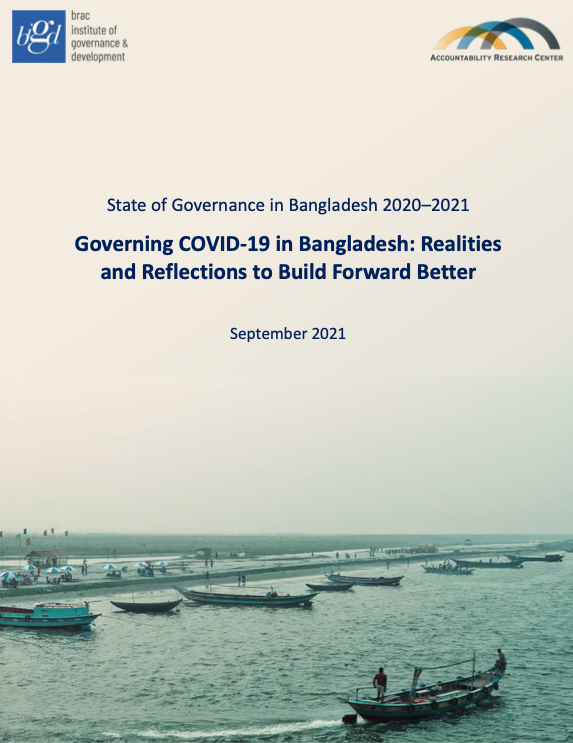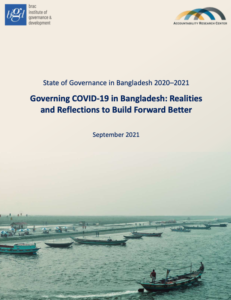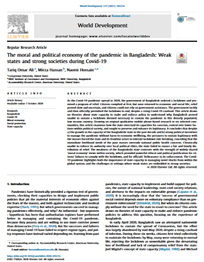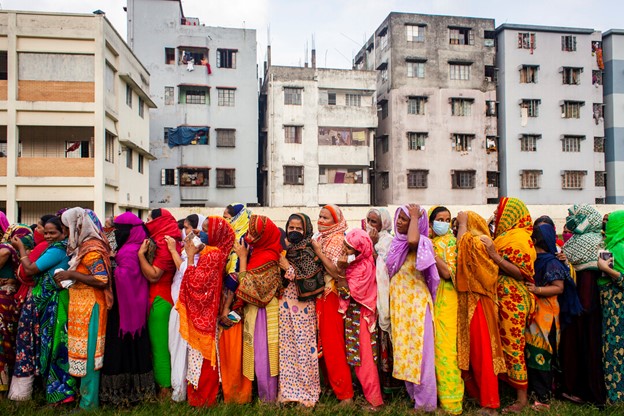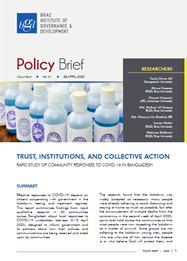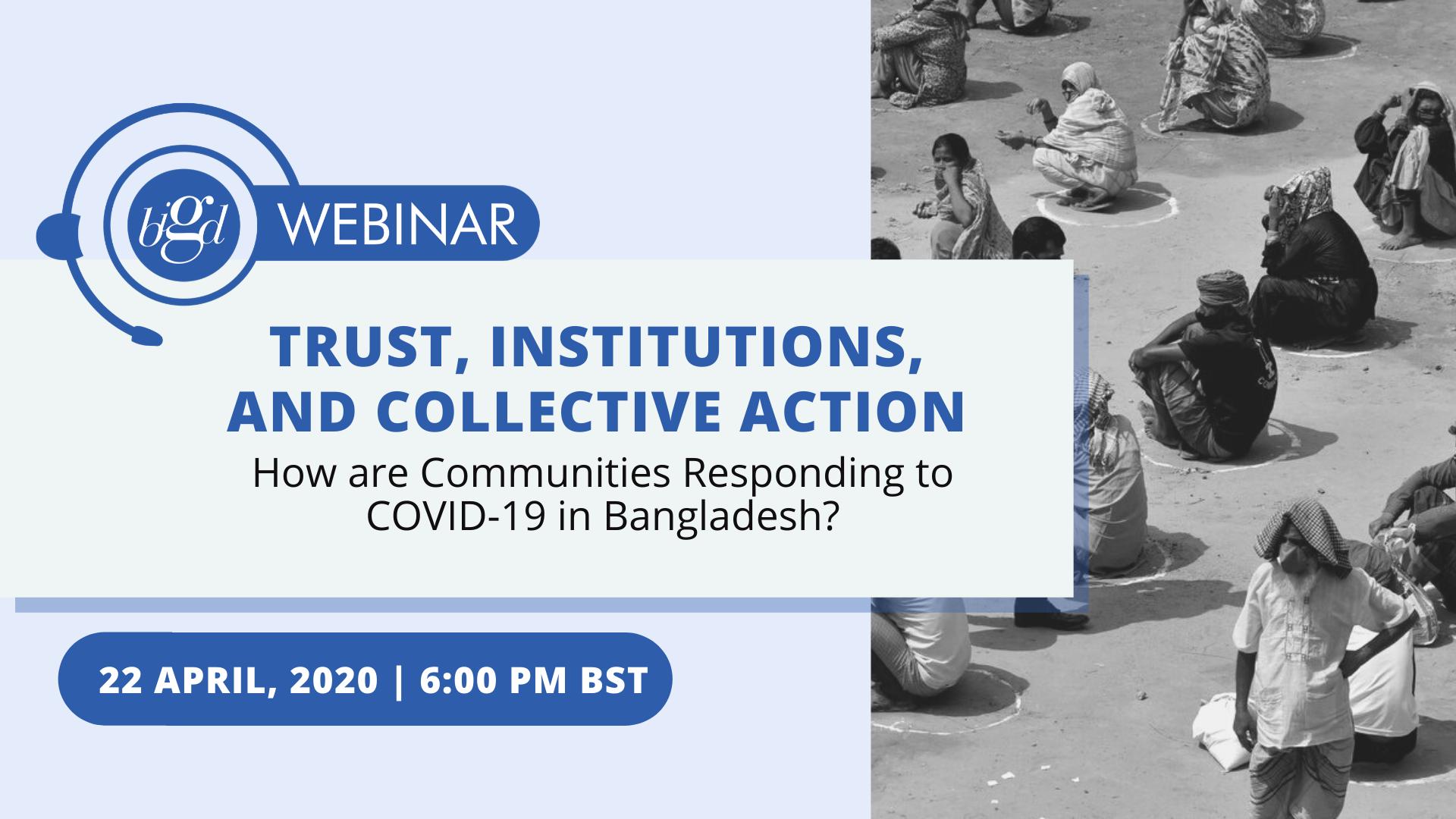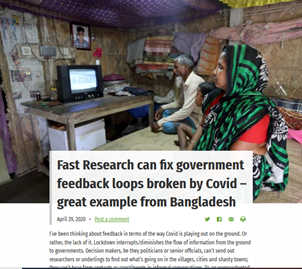As Bangladesh celebrates its 50th year of independence in 2021, it also faces an unprecedented health, social, and economic crisis in the form of the COVID-19 pandemic. A wave of the highly transmissible and deadly Delta variant of the Coronavirus swept through a population of which less than three percent have been fully vaccinated. Infection rates rose sharply from mid-May to mid-July of 2021, but the 1.12 million recorded cases and 18,125 recorded deaths are very likely to be an underestimation. After the first nationwide lockdown of 2021 was announced on 5 April, a second, and officially far stricter, lockdown was declared in July 2021; but restrictions were eased for the Eid-ul-Adha festival on 21 July. A large majority of the population continues to rely on daily wages, indicating the need for cash or food support to allow them to comply with the lockdown. It is amid these dangerous conditions and urgent need for action that this State of Governance in Bangladesh 2020–2021 report titled “Governing COVID-19 in Bangladesh: Realities and Reflections to Build Forward Better” documents how COVID-19 was managed in its first year. It aims to identify lessons both for managing the current crisis and, in the longer term, for redesigning governance to be strengthened from its encounters with the crisis. The State of Governance 2020–2021 report by the BRAC Institute of Governance and Development (BIGD), BRAC University, and the Accountability Research Center, American University, assesses the governance of COVID-19 in Bangladesh to document how policies were made and delivered, analyze the responses of political and government institutions, and derive lessons from the ongoing pandemic to support stronger crisis responses in the future. COVID- 19 is a global crisis of unprecedented scale and reach; the factors shaping how different countries have managed it are complex and many; and the crisis is ongoing, including in Bangladesh. While this means it is too early to conclude what kinds of governance responses worked best to protect people against COVID-19 or to mitigate its social and economic costs, it is not too soon to start learning from the first year of the pandemic. This report provides evidence and raises questions about how the pandemic was governed in Bangladesh. It examines the health sector response, lockdown management, relief program, economic stimulus program, situation in the ready-made garments (RMG) sector, and community-level governance of the pandemic. It uses an analytical framework to highlight key areas of the pandemic governance in the context of specific governance arrangements in Bangladesh and identify areas for improvement. A critical overarching lesson from this extensive study is that Bangladesh needs institutions that are strengthened by their encounters with crises: given the range of global crises that Bangladesh is exposed to—climate change, food security, health, economic—its governance must build back better each time it faces such stressors if it is to protect or ensure further progress for its people. Bangladeshi people are healthier, wealthier, and more resilient than ever, but it is increasingly clear that global shocks can easily wipe out these human development gains. Bangladesh’s continued development success depends on learning how to turn crises into opportunities, turning its much-cited resilience into something far more durable and potent—a state of “antifragility,” in which governmental and social forces get ever better at identifying, tackling, and recovering from the multiple shocks that they continually confront.
Antifragility is not limited to building more hospitals, training more doctors, and providing a more generous social safety net. It is a far broader concept, and more challenging transformations are necessary for Bangladesh to weather the many storms it will face. Economic growth alone will not achieve these changes. The State of Governance in Bangladesh 2020–2021 report shows that the way forward for Bangladesh rests on a change in how power, in particular state power, is exercised. It calls for a form of governance that retains its high-level elite commitment to broad-based development. But it also demands governance that is open and decentralized, in which communities are partners in, rather than subject to, governance. Bangladesh needs to restore the space for plural voices in the policy process, so that citizens do not fear holding public authorities accountable. The administration must be equipped and empowered to deal with fast-changing environments of great uncertainty at multiple levels. It must be able to partner with civil society, the media, and the private sector to innovate and learn from the many policy challenges it will face. Building back better means enabling the roots of antifragility to take hold in public institutions and practices. Bangladesh seems to have withstood the first year of the pandemic crisis reasonably well, but its impacts on major population groups—women, children, elderly or chronically ill people, and people living in poverty—are yet to be fully understood. Citizens continue to display considerable trust in the government’s ability to deliver public goods and help them thrive in a growing economy. However, there are limits to this trust. A national citizen perceptions survey (presented in Chapter 2 of this report) found that they were more divided on how the government has performed on specific tasks of COVID-19 management, e.g., testing and quarantining, and did not generally trust the system to impartially deliver relief to protect them during lockdowns. As this report documents, failures of governance reflect the sway of powerful political interests against those of the public—RMG industry elites pocketing much of the stimulus package intended to help workers, corruption in medical kit procurement, the politicization of relief distribution by local political bosses. Efforts have been made to muzzle the media and civil society, but these efforts could not stop the effective scrutiny of COVID-19 governance, which spotlights irregularities—bribery, fraud, violence, and corruption—in the management of lockdowns, testing, and relief programs. It is not clear how widespread the irregularities were, as citizens did not widely use the grievance redress mechanisms established to report them. It is clear, however, that the government has struggled to hold itself accountable amidst this vast, complex crisis, and has not allowed others to shape, contribute to, or monitor its public policy performance. The effectiveness of the pandemic response in saving lives and livelihoods is very likely to affect the government’s popular legitimacy. Yet, experience indicates that the government can manage the pandemic and future crises more effectively if it reconfigures how to exercise its power, building a system across state and society that learns and improves and checks itself continuously.
